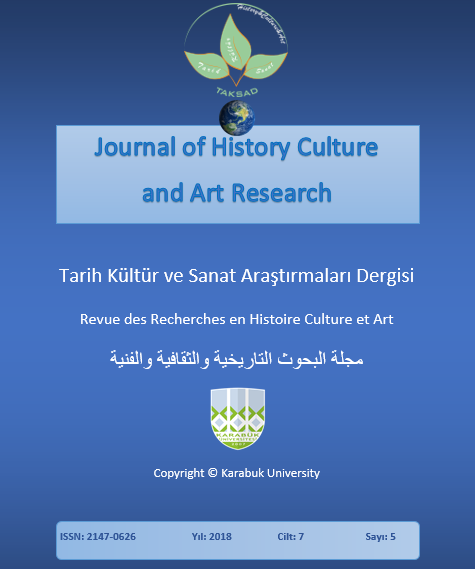Mainstreaming FATA: A Public Policy Imperative
DOI:
https://doi.org/10.7596/taksad.v7i5.1831Keywords:
FATA, FCR, Governance, Public policy, Policy process, Policy mechanism, Policy reforms.Abstract
The paper aims to analyze the situation of Federally Administered Tribal Areas (FATA) in the context of Frontier Crimes Regulation (FCR). It analyzes how a suitable public policy mechanism needs to be devised and implemented by replacing the old and an irrational FCR in FATA. It extensively examines the theoretical and conceptual perspectives on the public policy, the policy formation and policy factors. The Parsons’ seven steps model of policy framework has been theorized on the study for developing the appropriate policy. The qualitative methodology has been used to get in-detail and in-depth information about the governance mechanism and prevailing issues of FATA. There are three main elements; first getting familiar with the problem, second relevant players and third devising a policy. The study proposes that new public policy for FATA must be carried out with the consultation of the official (legislative, judiciary and executive) and unofficial stakeholders (civil society, media, ethnic groups, public opinion etc).
References
Akindele, S. T. & Olaopa, O. R. (2004). A theoretical review of core issues on public policy and its environment. Journal of Human Ecology, 16(3), 173-180.
Anderson, B. & Ruhs, M. (2010). Migrant workers: who needs them? A framework for the analysis of staff shortages, immigration and public policy. Who needs migrant workers, 15-52.
Aslam, F. & Kang, H. G. (2015). How different terrorist attacks affect stock markets. Defence and Peace Economics, 26(6), 634-648.
Birkland, T. A. (2015). An introduction to the policy process: Theories, concepts, and models of public policy making. Routledge.
Chari, R. & Heywood, P. M. (2009). Analysing the policy process in democratic Spain. West European Politics, 32(1), 26-54.
Cheema, P. I. & Nuri, M. H. (Eds.). (2005). Tribal Areas of Pakistan: challenges and responses. Islamabad Policy Research Institute.
Dye, T. R. (1976). What governments do, why they do it, what difference it makes. Understanding public policy, 1-18.
Freeman, G. P. (2006). National models, policy types, and the politics of immigration in liberal democracies. West European Politics, 29(2), 227-247.
Gerston, L. N. (2014). Public policy making: Process and principles. Routledge.
Hill, M. & Hupe, P. (2009). Implementing Public Policy. An Introduction to the Study of Operation Governance.
Javaid, U.; Haq, U. & Akram, M. (2016). Political Challenges and Security Issues in FATA and its impact on Economic Development. South Asian Studies (1026-678X), 31(1).
Khan, S. (2016). Special Status of FATA: Illegal Becoming Licit.
Khan, Z. A. (2012). Military operations in FATA and PATA: Implications for Pakistan. Strategic Studies, 31(4-1).
Khokhar, N. I.; Abbasi, M. A. & Shahid, S. (2014). FATA: Geography, History and Culture. Evolving Dynamics of FATA: Reflections on Transformations, 1
Latif, A. & Musarrat, R. (2013). Socio-political issues of Fata, a historical and contemporary perspective. Journal of Public Administration and Governance, 2(4), 202-218.
Nawaz, S. & de Borchgrave, A. (2009). FATA-A most dangerous place. Center for Strategic and International Studies, 15.
Ronald Shaw, I. G. & Akhter, M. (2012). The unbearable humanness of drone warfare in FATA, Pakistan. Antipode, 44(4), 1490-1509.
Rumi, R. A. (2012). Pakistan: Ungoverned Spaces.
Sefton, T. (2006). Distributive and redistributive policy. In The Oxford handbook of public policy.
Shah, S. W. A. (2017). Political Reforms in the Federally Administered Tribal Areas of Pakistan (FATA): Will it End the Current Militancy? Heidelberg Papers in South Asian and Comparative Politics, (64).
Ullah, S.; Rehman, S. U.; Idrees, M.; Shouaib, M. & Fahad, M. (2017). Impact of FATA merger with Khyber Pakhtunkhwa. International Journal of Social Sciences, Humanities and Education, 1(3), 203-211.
Wazir, A. (2012). Which System for Fata? News International.
Wazir, M. M. K. (2007). FATA Under FCR (Frontier Crimes Regulations): An Imperial Black Law.
Yousaf, F. (2018). Pakistan’s colonial legacy: FCR and postcolonial governance in the Pashtun tribal frontier. Interventions, 1-16.
Downloads
Published
How to Cite
Issue
Section
License
All papers licensed under Creative Commons 4.0 CC-BY.- Share — copy and redistribute the material in any medium or format
- Adapt — remix, transform, and build upon the material for any purpose, even commercially.
Under the following terms:
Attribution — You must give appropriate credit, provide a link to the license, and indicate if changes were made. You may do so in any reasonable manner, but not in any way that suggests the licensor endorses you or your use.
- No additional restrictions — You may not apply legal terms or technological measures that legally restrict others from doing anything the license permits.







